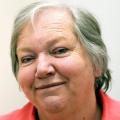
THERE are hundreds in Cumbria who have never heard of a certain group of medical heroes - but that is about to change.
The BEEP Doctors are a group that was set up in Penrith, specifically by the Birbeck Surgery. BEEP stands for Birbeck Emergency Equipment for Patients.
Now, after going from three doctors to 15, they are just BEEP, and they can offer their services across the whole of Cumbria.
BEEP Doctors is a charity which brings emergency medical care to patients. Whether that is on the roadside at the scene of a road traffic accident or in a patient’s home during a life-threatening emergency.
The volunteer doctors are on call 24 hours, 7 days a week to provide enhanced clinical care in medical emergencies and nobody is paid for this extra service, whether doctors or support staff. The service receives no NHS funding and is reliant on public donations and support.
The doctors are all professionals who have undertaken additional training in enhanced pre-hospital medicine.
In their day jobs, they all work either as GPs, consultants, anaesthetists, in A&E.
Many of them also volunteer for the Mountain Rescue or the Great North Air Ambulance.
BEEP Doctors provide an extra level of medical intervention not normally available until the patient reaches hospital. This stabilises the patient much sooner than would otherwise be the case and therefore improves their chances of a better long-term outcome.
They attend most major incidents in the county, including road traffic collisions, farming accidents or other life-threatening medical emergencies.
Over the years, the team have saved numerous lives and have become an integral part of the emergency services.
Our aim is to provide enhanced pre-hospital care to all patients who need it across the region of Cumbria, not limited by location, time of day, or day of the week.
A spokeswoman explained what happens after a call to 999 is received: "If our doctors are available and ready to respond they will then put on their emergency response suits, inform the control room that they will attend the incident and start travelling to scene – usually on blue lights and sirens!
"For situations requiring a major incident response such as a major explosion or accident with multiple casualties, our doctors will still usually travel even if they are very far from the incident.
"A BEEP doctor must have completed between four to six years of medical school, followed by two years of Foundation Training where doctors rotate around various specialties.
"Many of our doctors have then gone on to undertake or complete advanced specialised training in other areas of medicine including Primary Care, Emergency Medicine, Anaesthesia, Intensive Care Medicine and Acute Medicine."
This is not a big charity, with a big team, but it costs a lot to keep doctors trained and to provide them with essential equipment and medicine.
Every penny the public donates or raises through fundraising goes back into the charity; ensuring the doctors can provide first class care to patients in an emergency.
"Our doctors have saved countless lives and limbs over the years and are called to hundreds of incidents each year right across Cumbria."
This year has been a whirlwind year for the BEEP Doctors - and unlike any they have had before - and because they have grown, so have the costs.
"In 2021 we took on the huge challenge of trying to raise £145,000 to ensure all our crew have the essential lifesaving equipment they need," the spokesperson went on.
"I am pleased to say we smashed this figure and we’ve been able to buy some amazing new technology including state of the art monitors/defibrillators that is going to help us help more people in need.
"We attended over 400 incidents throughout Cumbria working alongside the other emergency services.
"We were lucky enough to be given a new emergency vehicle which one of our on call doctors can use, but in 2022 we want to raise enough money to buy four more.
"The emergency response vehicles are so important as currently the doctors are all using their own cars to respond, which is not always ideal when trying to get to the scene of an emergency."



Comments: Our rules
We want our comments to be a lively and valuable part of our community - a place where readers can debate and engage with the most important local issues. The ability to comment on our stories is a privilege, not a right, however, and that privilege may be withdrawn if it is abused or misused.
Please report any comments that break our rules.
Read the rules here